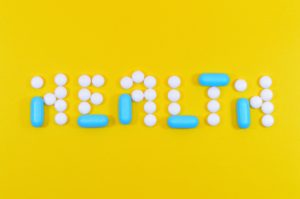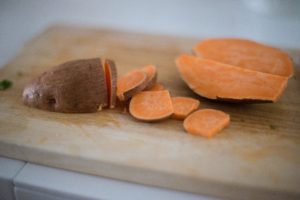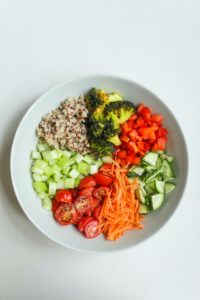Your body needs vitamins and minerals to stay healthy and strong. You probably also know that most experts agree that whole foods (not gummy vitamins) are the best source of essential nutrients. The most essential vitamins women should be getting every day, and exactly how much you should be consuming depending on your age and whether you’re pregnant or lactating. Ideally, you’ll be getting these vitamins through the whole food sources listed below, but if that’s not possible, there are dietitian-recommended supplements and multivitamins you can take as well. Still, if you’re super concerned about a deficiency, make sure to chat with your dietitian or doctor about whether you should make a lifestyle change or consider a supplement.

Supplements
Iron

Iron
Iron increases the production of red blood cells, supports immune function, and temperature regulation in your body. Slacking on your iron intake causes your body to reduce the production of red blood cells, causing anemia. It can lead to fatigue, shortness of breath, as well as decreased immune function. The blood loss during your period depletes your body’s iron stores, so it’s particularly important for women with heavy periods to eat iron-rich foods or take supplements.
Where to find it – Iron is found in green leafy vegetables, chicken, fish, beans, and whole grains.
Magnesium

Magnesium
Magnesium maintains normal muscle and nerve function, keeps your heart rhythm steady, supports a healthy immune system, keeps bones strong, helps regulate blood sugar levels, and promotes normal blood pressure.
Where to find it – Magnesium is found in green vegetables like okra, some beans, nuts, seeds, and unrefined whole grains.
Biotin

Biotin
Biotin aids in the formation of fatty acids and blood sugar, which are used for energy production in the body. Plus, it helps metabolize amino acids and carbohydrates.
Where to find it – Cauliflower, liver, sweet potato, almonds, avocado, seeds, eggs, milk, grains, raspberries.
Iodine

Iodine
Iodine is important for men and extra-important for women. The body needs iodine to make thyroid hormones. These hormones control the body’s metabolism and many other important functions. The body also needs thyroid hormones for proper bone and brain development during pregnancy and infancy.
Where to find it – Fish (such as cod and tuna), seaweed, shrimp, and other seafood, which are generally rich in iodine.
Fiber

Fiber
It promotes healthy bowel, lowers the risk of heart disease, helps you feel full, and promotes weight loss. Fiber is incredibly beneficial for a variety of health reasons, and most women fall short of consuming enough of the vitamin. Adequate fiber intake can control blood sugar levels by slowing down the rate of sugar absorption. This process can help ward off type 2 diabetes.
Where to find it – Plant-based foods like fruits, vegetables, nuts, beans, grains, and legumes contain hearty doses of fiber.
Zinc

Zinc
Defends against toxins and foreign substances, and develops T-cells, which help fight off viruses. Zinc helps with blood clotting, taste perception, and keeps your blood sugar stable. Zinc is essential for developing T-cells, it plays a major role in keeping your immune system running smoothly—including fighting off virus-infected and cancerous cells.
Where to find it – Zinc-rich foods include legumes, oysters, nuts, and seeds
